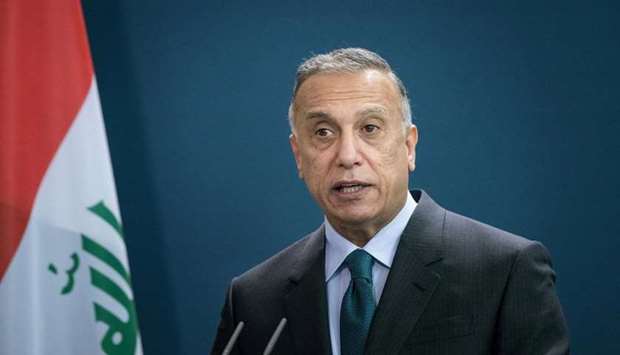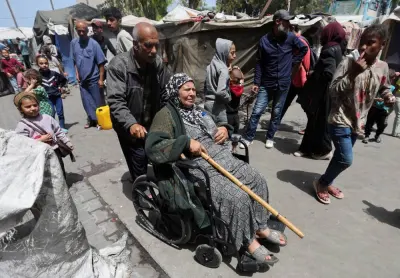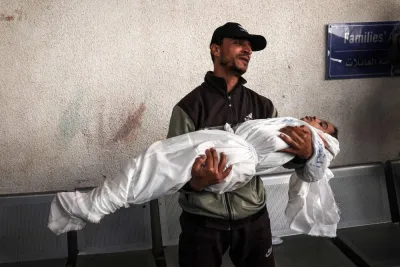A drone attack that targeted the Iraqi prime minister yesterday was carried out by at least one militia, Iraqi security officials and militia sources said, weeks after some groups were routed in elections they say were rigged.
Prime Minister Mustafa al-Kadhimi escaped unhurt when three drones carrying explosives were launched at his residence in Baghdad.
Several of his bodyguards were injured. The incident whipped up tensions in Iraq, where powerful paramilitaries are disputing the result of a general election last month that dealt them a crushing defeat at the polls and greatly reduced their strength in parliament. Many Iraqis fear that tension among the main groups that dominate government and most state institutions, and also boast paramilitary branches, could spiral into broad civil conflict if further such incidents occur.
Baghdad’s streets were emptier and quieter than usual yesterday, and additional military and police checkpoints in the capital appeared intent on keeping a lid on tensions.
Iraqi officials and analysts said the attack was meant as a message from militias that they are willing to resort to violence if excluded from the formation of a government, or if their grip on large areas of the state apparatus is challenged.
“It was a clear message of, ‘We can create chaos in Iraq — we have the guns, we have the means’,” said Hamdi Malik, a specialist on Iraq’s militias at the Washington Institute.
No group has claimed responsibility for the attack.
Militia groups did not immediately comment and a neighbouring country government did not respond to requests for comment.
Militia sources said the commander of Iran’s Revolutionary Guards’ overseas Quds Force travelled to Iraq on Sunday after the attack to meet paramilitary leaders and urge them to avoid any further escalation of violence. Two Iraqi security officials, speaking to Reuters yesterday on condition of anonymity, said the Kataib Hezbollah and Asaib Ahl al-Haq groups carried out the attack in tandem.
A militia source said that Kataib Hezbollah was involved and that he could not confirm the role of Asaib. Neither group commented for the record.
The main winner from the election, cleric Moqtada al-Sadr, is a rival of the groups who, unlike them, preaches Iraqi nationalism and opposes all foreign interference. Malik said the drone strike indicated that the militias are positioning themselves in opposition to Sadr, who also boasts a militia.
Many militias have watched Sadr’s political rise with concern, fearing he may strike a deal with Kadhimi and moderate allies, and even minorities, that would freeze them out of power.
Militias have led cries of fraud in the Oct 10 election but offered no evidence.
Since then their supporters have staged weeks of protests near Iraqi government buildings.
One of the Iraqi security officials said the drones used were of the “quadcopter” type and that each was carrying one projectile containing high explosives capable of damaging buildings and armoured vehicles.
The official added that these were the same type of drones and explosives used in attacks this year on US forces in Iraq, which Washington blames on militias including Kataib Hezbollah.

Prime Minister Mustafa al-Kadhimi (file picture)


